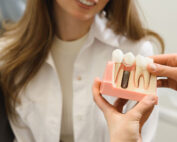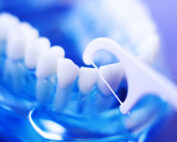News + Articles
How Long Do Dental Implants Last?
Wondering how long dental implants last? You’re not alone. This popular tooth replacement option is durable. But, many people want to know what to expect.
The titanium implant itself can last over 25 years. With proper dental care, it can last a lifetime.
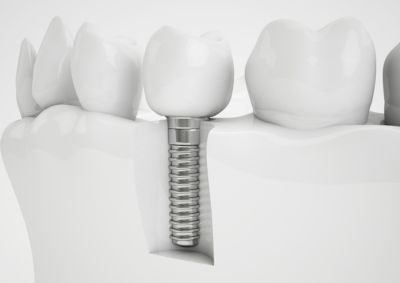
However, it’s important to understand that there are two parts to an implant:
The implant itself: This is the screw-like piece surgically placed in your jawbone.
Made from titanium, it’s incredibly strong and can last a lifetime with proper care.
The crown: This is the visible part that looks like natural teeth. It’s attached to the implant.
It typically needs replacing every 10-15 years due to wear and tear, like your natural teeth.
So, what affects how long your implants last? It’s a combination of factors:
What Factors Impact How Long Dental Implants Last
Several key factors work together to determine the lifespan of dental implants:
Quality of the Implant and Dental Crown
Higher-quality materials generally last longer. Reputable implant brands like Straumann or Nobel Biocare have great clinical data. It’s on the long-term outlook for their implant systems.
See more: What are dental implants made of? Insights from experts
The crown material also matters. Ceramic, high-noble metal, or zirconia last longer. They last longer than acrylic or porcelain fused to metal.
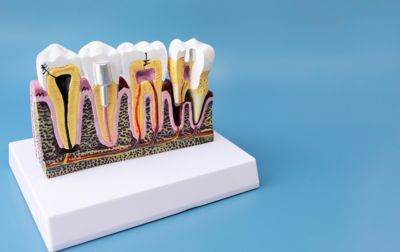
Skill and Experience of the Surgeon
An experienced implant dentist or oral surgeon has advanced training. They also regularly place implants. They will achieve the best positioning and stability. This results in higher long-term success rates.

Health and Density of Jawbone
Patients need sufficient bone volume and density to correctly integrate the implant. Conditions like severe gum disease and tooth extraction can be complications of osteoporosis. They can affect the foundation of the implant.

Location of the Implant
The lower jaw has great bone quality for implants. The upper jaw is more problematic. It has a lower density. Front teeth areas also tend to be more favorable than posterior sites.
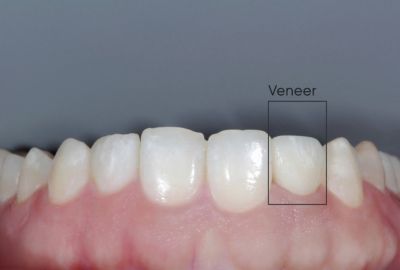
Oral Hygiene and Maintenance
Good dental hygiene and professional care are key. They reduce plaque buildup and prevent infection or damage around implants. It is recommended that you visit the dentist every 3-6 months.
See more: A Guide to Cleaning Dental Implants by an Expert

Lifestyle Factors
Habits like smoking and too much drinking harm gums. They also weaken bones. Grinding or clenching can overload the implants. This can cause fractures or loosening over time.
See More: Lifestyle factors affect the speed of wound healing

Guide Caring For Dental Implants
Dental implants are a remarkable innovation to replace missing teeth. They offer a durable and natural-looking solution.
However, their long-term success hinges on proper care and maintenance. Here’s a complete guide on caring for your dental implants. It will ensure they thrive for years to come.
Brushing
To maintain dental health, brush twice daily. Use a soft, implant-specific toothbrush and gentle toothpaste. Use products made for sensitive teeth.
Employ circular motions, angling the brush at 45 degrees to effectively cleanse the gum line and the area beneath the crown, ensuring your implants remain durable and comfortable.
Flossing
Flossing every day is key to keeping your dental implants and the teeth around them healthy. Choose floss or brushes made for implants. They are for the tight spaces around implants.
Avoid regular floss, which could fray. Move the floss or brush around the implant and its neighboring teeth. Do this to keep them clean and whole without using too much force.
Mouthwash
Add an alcohol-free mouthwash to your oral care routine. Do this once or twice daily. It is a great addition to brushing and flossing.
Swish the mouthwash for at least 30 seconds. Make sure it covers the implant area well. And, take care not to swallow it.
More Advice
Regular dental checkups every six months are critical. They are key for finding issues early and for the health of your implants. Adopt a healthy lifestyle.
Avoid harmful habits like smoking and too much drinking. They can harm your gums and bones, risking your implants.
Changing your diet to exclude hard, chewy, or sticky foods can also reduce stress on your implants.
If you worry about teeth grinding or clenching, a custom nightguard can protect your implants. It guards against potential damage.
Following these care tips will help. A healthy lifestyle will also lengthen the life of your dental implants. This will let you enjoy their benefits for many years.
Remember, see your dentist often. They give personalized advice and ensure your implants last.
See more: How Do You Care for Dental Implants? Guidance from experts
Signs Of Dental Implant to Fail
See your dentist promptly if you notice any of the following around dental implants:
- Loosening of the implant crown
- Sudden changes in chewing ability
- Swelling, bleeding, or pus around the implant
- Chronic gum inflammation or infection
- Damage, cracks, or fractures in the crown
- Persistent pain or sensitivity from the implant site
If an implant fails, you can try to repair it. Or, you can put in a new one. Or, you can use other tooth replacement options like a dental bridge.
In conclusion, dental implants are not invincible. They are designed as a permanent solution for tooth replacement. They can last for decades with good care.
Their longevity is influenced by factors. These include the quality of the implant and crown. Also, the surgeon’s skill matters. So do jawbone health, implant location, hygiene, and lifestyle.
Regular dental check-ups and maintenance are crucial for preserving implant health. Be aware of potential signs of dental implant failure and consult your dentist if they occur.
Exploring Dental Implants and Alternatives
The long life of dental implants is vital. But, it’s natural to have other concerns:
Appearance: Will they look natural? Absolutely! Dental implants are custom-made to blend with your existing teeth. They ensure a natural-looking smile.
Comfort: Is the procedure painful? The procedure is done under anesthesia. Your dentist will discuss pain management options for after to keep you comfortable.
Cost: Dental implants are an investment in your oral health and overall well-being. The cost per implant is $3,000 to $5,000 on average. But, it can vary based on factors such as:
- Location of the dentist.
- Dentist’s expertise and experience.
- Materials used for the implant and crown.
- Complexity of the procedure.
It’s crucial to remember that this is simply an estimated range, and the actual cost may differ. For a cost estimate, consult a dentist. They can discuss your needs and treatment plan.
Long-term commitment: Do they last a lifetime? With proper care and regular dental checkups, dental implants can last a lifetime. They offer a stable and reliable solution.
Exploring Insurance Coverage: Dental insurance covers implants differently. Coverage varies with your plan.
Some plans might cover part of the implant or crown. Others might not cover any of the procedures.
You must check with your insurance provider. This is essential to understand your coverage and any possible out-of-pocket costs.
Exploring Alternatives
While dental implants offer numerous advantages, they are not the only option:
Dental bridges are fixed restorations. They are anchored to healthy teeth. They fill the gap left by the missing tooth. They are usually cheaper than implants. But, they may need changes to neighboring teeth and can be less durable.
Dentures are removable replacements for missing teeth. They offer a cheap solution for multiple missing teeth. However, they may affect speech. They need regular adjustments and cleaning. Some find them uncomfortable.
Partial Dentures are similar to dentures but only replace a few missing teeth. They offer a more flexible and potentially more comfy option than full dentures.
Frequently Asked Questions
How often do implants need to be replaced with teeth?
The Titan implant itself can last over 25 years, potentially a lifetime. However, the crown attached to the implant usually needs replacement. This is due to wear and tear and happens every 10-15 years.
The timeframe can vary. The cost depends on factors like the crown’s material. It also depends on the patient’s oral health and, their habits, like grinding teeth.
What happens to dental implants after 20 years?
After 20 years, dental implants are still functional. But, they may show wear, especially in the crown. The implant post itself often remains well-integrated with the jawbone.
Regular check-ups are important. They monitor the health of the implant and nearby tissues. Maintenance or replacement of the crown might be necessary.
What is the failure rate of dental implants?
The failure rate of dental implants is relatively low. Clinical studies indicate a success rate of 90-95% over 10 years.
Many factors can lead to failure. These include bad oral hygiene and weak bones. Also, certain health conditions and wrong implant placement or loading.
You must follow care instructions after surgery. Also, keep up regular dental visits. This will cut the risk of implant failure.

Dr. Ronald Pham, DDS, is a Doctor of Dental Surgery who graduated from the USC Ostrow School of Dentistry in 2015. With over 8 years of experience in general dentistry, he specializes in Dental restoration, Root canal treatment, and Dental implants…
Dr. Pham has restored the smiles of +2,000 patients and is committed to providing professional dental care focused on patient comfort. He achieves this by combining a welcoming space and state-of-the-art dental technology.
Book Your Appointment Now
Related Articles

Guaranteed Smiles!
As a premiere dentist office in Orange CA, we will always make sure that your experience is memorable, friendly, and professional. We strive to meet your highest expectations in every way imaginable, from your very first interaction with our office staff, to the quality of treatment you receive. We don’t take our patients’ trust for granted, and will promise to over-deliver with your best interest in mind. So give us a call today, and experience our first-class service!
Insurance
Accepted
We proudly accept most dental insurance plans, and welcome cash patients as well. Call us today for more information.
$199
Special
New to our dental office? Take advantage of our New Patient special offer with x-rays, exam, and full report of findings.
Extended
Hours
Do you have an emergency? Need to see us a little later or earlier? Let us know. We can be flexible to meet your busy schedule!


